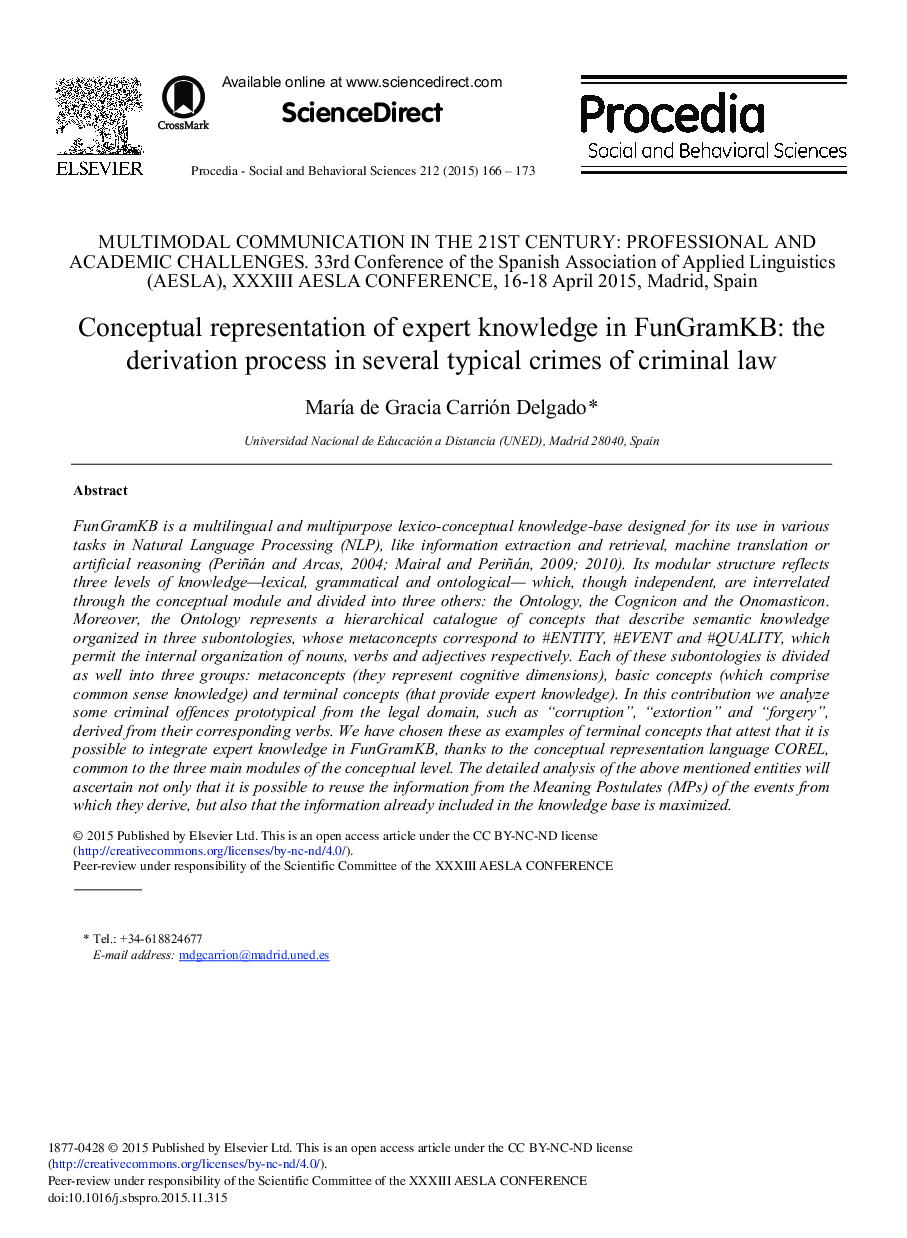| Article ID | Journal | Published Year | Pages | File Type |
|---|---|---|---|---|
| 1109627 | Procedia - Social and Behavioral Sciences | 2015 | 8 Pages |
FunGramKB is a multilingual and multipurpose lexico-conceptual knowledge-base designed for its use in various tasks in Natural Language Processing (NLP), like information extraction and retrieval, machine translation or artificial reasoning (Periñán and Arcas, 2004; Mairal and Periñán, 2009; 2010). Its modular structure reflects three levels of knowledge—lexical, grammatical and ontological— which, though independent, are interrelated through the conceptual module and divided into three others: the Ontology, the Cognicon and the Onomasticon. Moreover, the Ontology represents a hierarchical catalogue of concepts that describe semantic knowledge organized in three subontologies, whose metaconcepts correspond to #ENTITY, #EVENT and #QUALITY, which permit the internal organization of nouns, verbs and adjectives respectively. Each of these subontologies is divided as well into three groups: metaconcepts (they represent cognitive dimensions), basic concepts (which comprise common sense knowledge) and terminal concepts (that provide expert knowledge). In this contribution we analyze some criminal offences prototypical from the legal domain, such as “corruption”, “extortion” and “forgery”, derived from their corresponding verbs. We have chosen these as examples of terminal concepts that attest that it is possible to integrate expert knowledge in FunGramKB, thanks to the conceptual representation language COREL, common to the three main modules of the conceptual level. The detailed analysis of the above mentioned entities will ascertain not only that it is possible to reuse the information from the Meaning Postulates (MPs) of the events from which they derive, but also that the information already included in the knowledge base is maximized.
